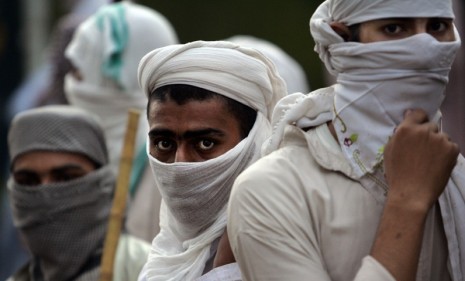How Islamic fundamentalists can help fight terrorism
The British government is employing a promising — and controversial — new counterterrorism strategy, writes Tina Rosenberg in Foreign Policy

A free daily email with the biggest news stories of the day – and the best features from TheWeek.com
You are now subscribed
Your newsletter sign-up was successful
Muslim fundamentalists may be our best hope for fighting Islamic terrorism, says Tina Rosenberg in Foreign Policy. The idea is that those who adhere to a more extreme form of the religion may have the best chance of getting through to the "alienated" young men who might become terrorists — and stop them before they turn violent. That approach, which has been put to the test in London, has "evolved into one of Britain's most promising counterterrorism strategies — and perhaps its most controversial," says Rosenberg. Here, an excerpt on the STREET program run at Abdul Haqq Baker's London mosque:
Hard-line mosques like Brixton have often been the last stop before radicalism for people like [Zacarias] Moussaoui and [Richard] Reid. But mosques generally don't know what to do with such young men, especially if they stop short of openly advocating violence. The usual response is to expel them. But once they're out the door, they may be gone for good.
In this dilemma, Baker saw an opportunity. ... [His STREET program] offers mentoring for thousands of drop-ins and recently released Muslim convicts, helping with schooling, job training, and anti-violence counseling. If a STREET drop-in mentions an al Qaeda propaganda video he has seen, counselors watch it with him, pointing out the fallacies in its interpretation of Islam. STREET's mostly Salafi staff members are credible to their audience because they are like them -- indeed, several were once in their shoes. "If they cannot relate to you," says Baker, "if your lifestyle doesn't resonate, they will not accept anything from you."
The Week
Escape your echo chamber. Get the facts behind the news, plus analysis from multiple perspectives.

Sign up for The Week's Free Newsletters
From our morning news briefing to a weekly Good News Newsletter, get the best of The Week delivered directly to your inbox.
From our morning news briefing to a weekly Good News Newsletter, get the best of The Week delivered directly to your inbox.
Read the entire article at Foreign Policy.
A free daily email with the biggest news stories of the day – and the best features from TheWeek.com